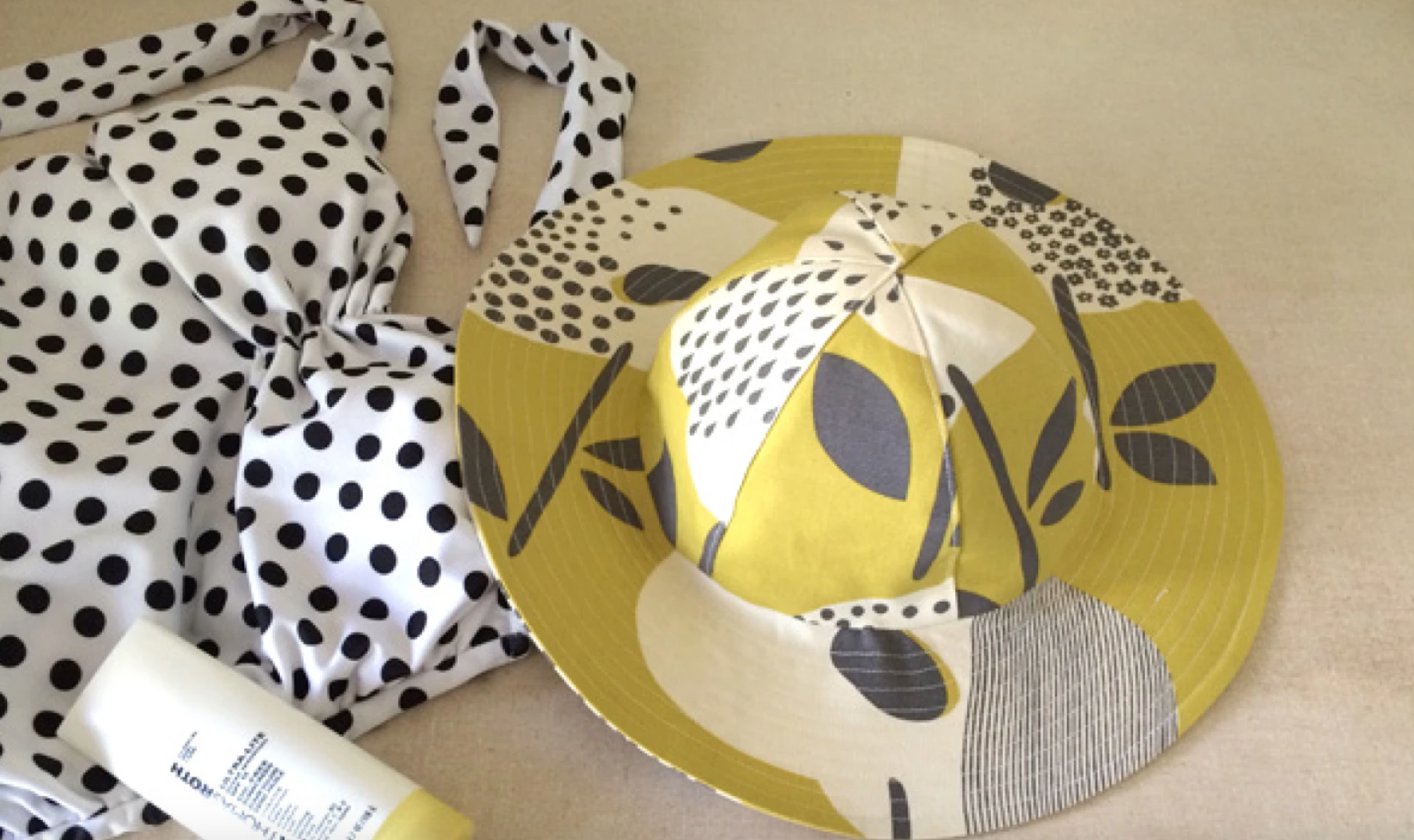
When you’re packing for a sunshine-and-chill vacation, you’re not exactly looking to lug around extra stuff — especially not one of those giant woven sun hats that won’t even fit in your suitcase. But you’ll definitely need to keep out the rays, which is where a lightweight, foldable DIY sun hat comes in. You can stuff this cutie right in your carry-on, not to mention make it to match your swimsuit and amp up your sunny-weather style.
Folding Sun Hat
Level: EasyWhat You Need
Instructions
1. Print the Pattern
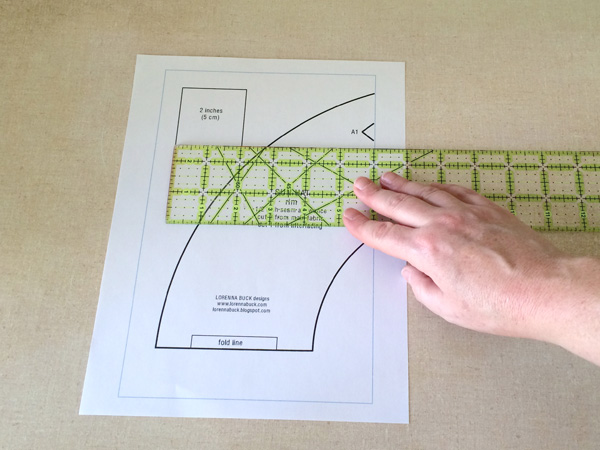
If you’ve never used a PDF pattern before, the first thing you always need to do is print the page with the test square on it. Print the page at 100 percent with no scaling, using PDF reader software like Adobe Acrobat. Once you’ve printed that page and the square is the correct size, print the remaining pages.
2. Assemble the Pattern
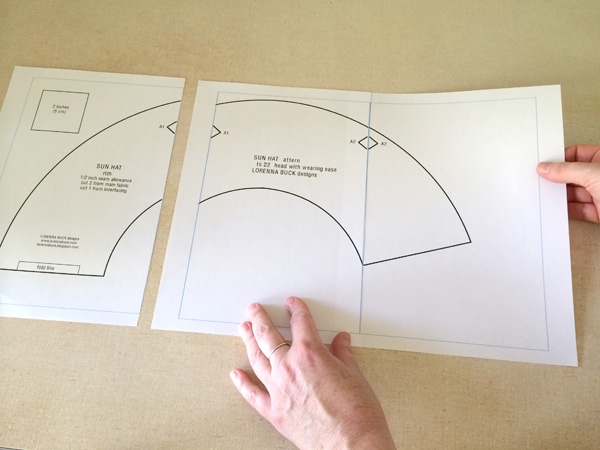
PDF patterns need to be assembled, since they’re full-sized patterns broken up to fit on regular-sized sheets of paper. Trim the bottom and right edges of each page and line up the outer rectangle lines and markings of the pattern. Tape along the seams to form one large pattern piece.
3. Cut It Out
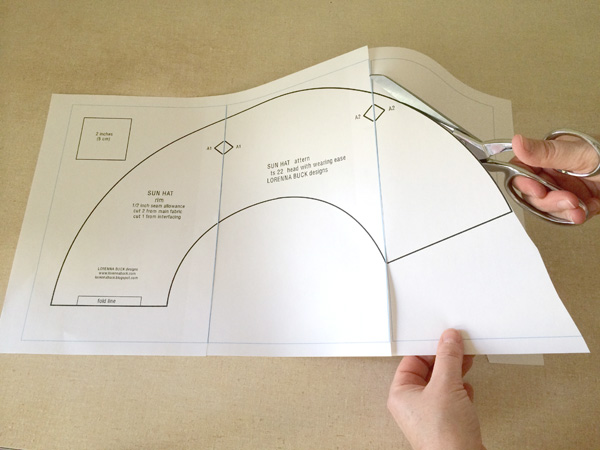
When you’ve assembled all the pages, cut around the pattern shape. For this hat project, there’s one piece for the rims and one piece for the cap.
4. Cut the Fabric
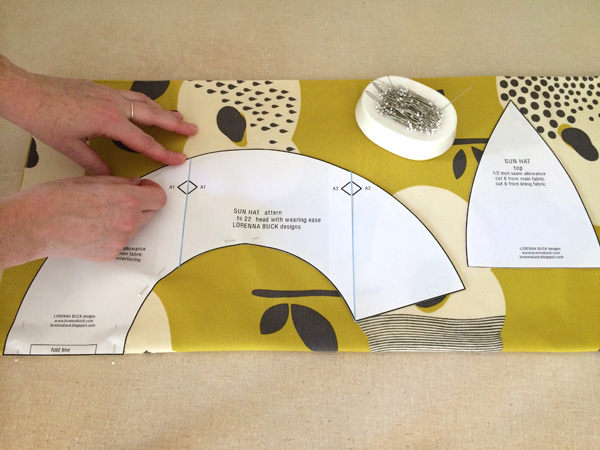
Cut two pieces for the rim by placing the pattern on the fold, then cut six triangle-shaped pieces for the cap. There isn’t a grain line on the cap piece, so be sure to place it on grain. We’ve cut this one with the length of grain running vertically with the piece, so the cross grain stretch goes around the cap.
Pro Tip: For the outer portion of the hat, it’s a good idea to use a medium to heavyweight canvas or similar fabric. The fabric we’re using in is 100 percent cotton canvas weight.
5. Pin Together
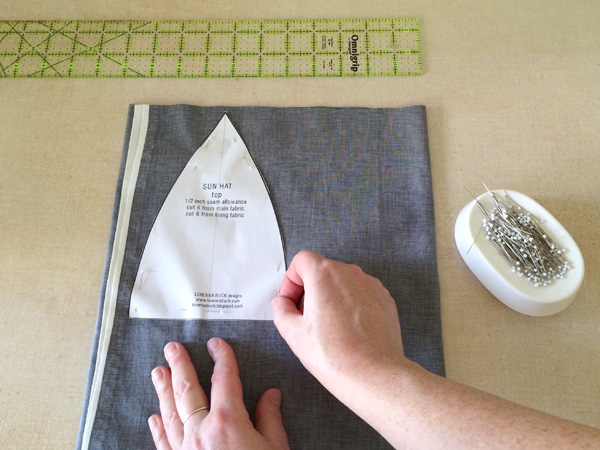
Repeat by cutting six pieces for the interior lining of the cap. (You should use quilt-weight cotton or a similar fabric.) Again, be sure to place the pattern on grain when pinning to the fabric.
6. Sew the Cap
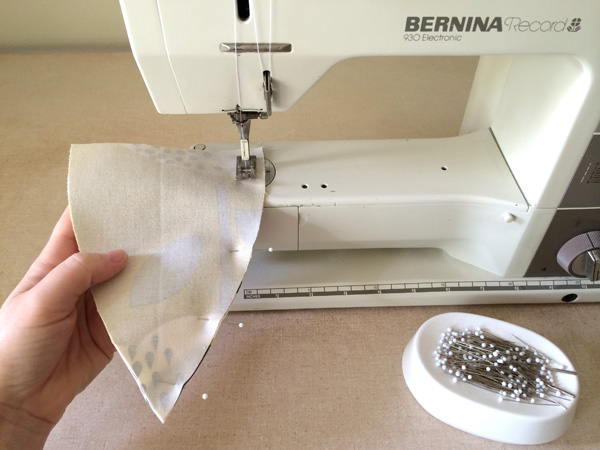
Place two of the outer cap pieces together, right sides facing. Pin along one of the curved edges and sew on the project’s seam allowance of ½”.
Pro Tip: It’s best to sew toward the points on the cap pieces. It’s much harder to line up on the correct seam allowance with the curve and point.
7. Press
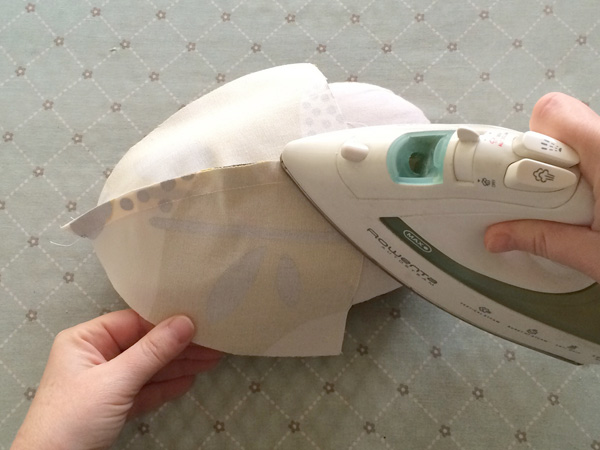
After sewing the seam, press the seam allowance to the right. Because it’s a 3D piece and won’t lay flat, use a pressing ham under the curve.
8. Topstitch As You Go
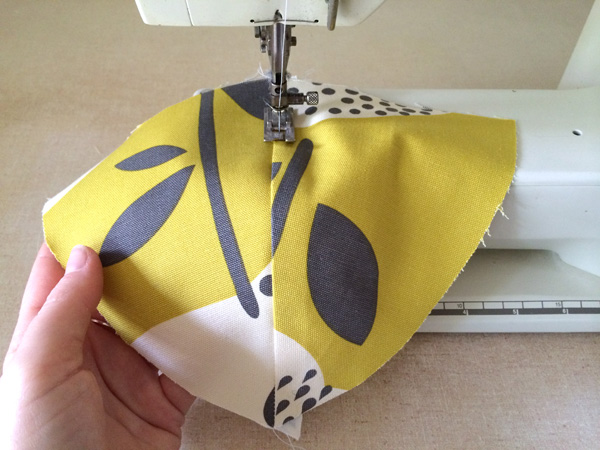
Topstitch the piece. You want to topstitch each curved cap seam as you make them.
9. Keep Stitching
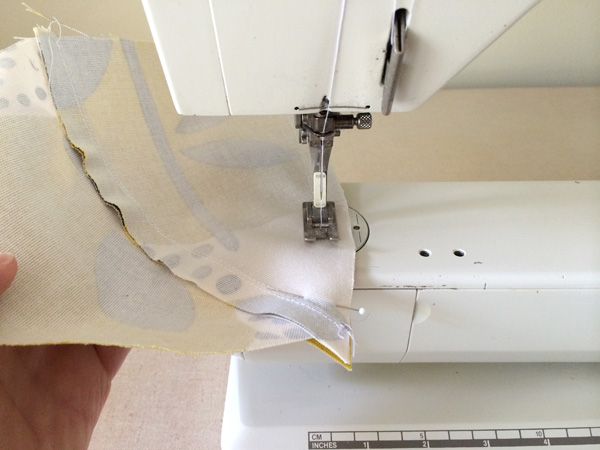
Place a third piece on the cap pieces you’ve already sewn, keeping the right sides together and pinning along the curved edge. As you did with the last pair, sew toward the top point along the ½” seam allowance.
10. Press and Topstitch Again
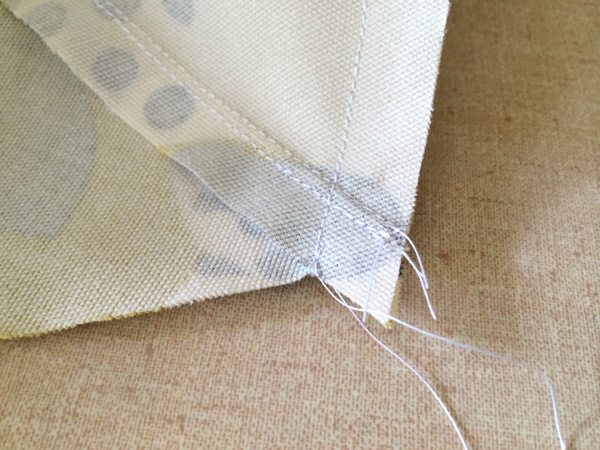
When the three pieces meet at the top, the stitching will land right where the pieces intersect. Press the seam allowance to the right, as you did with the previous seam.
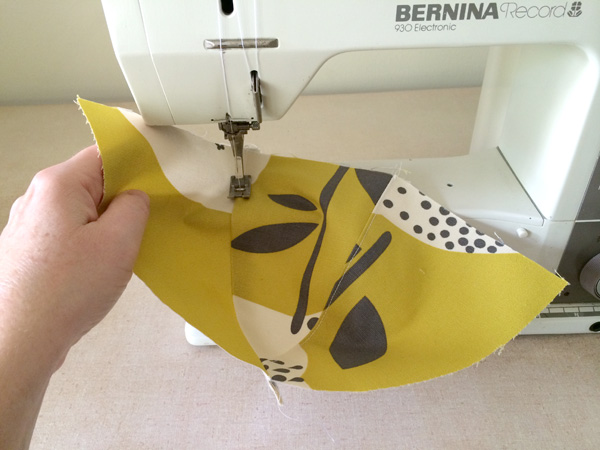
Topstitch along the seam you’ve just sewn at a ⅛” seam allowance. You now have half of the cap!
Repeat steps 5-10 to form the other half of the cap.
11. Sew It Together
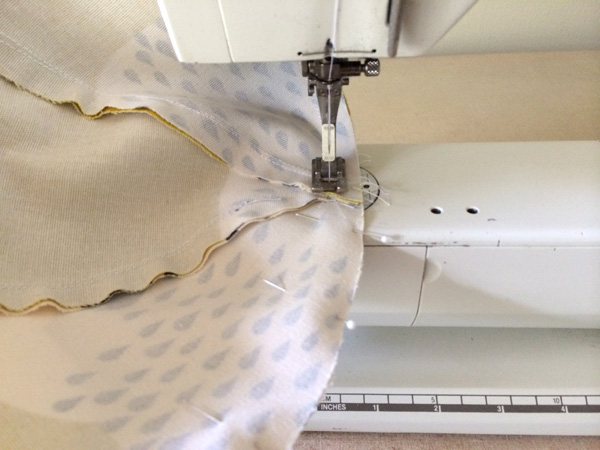
Place the two cap sections right sides together and pin along the top curve. Stitch along the curve at a ½” seam allowance. Press the seam allowance to one side, with your pressing ham underneath to fill the empty space.
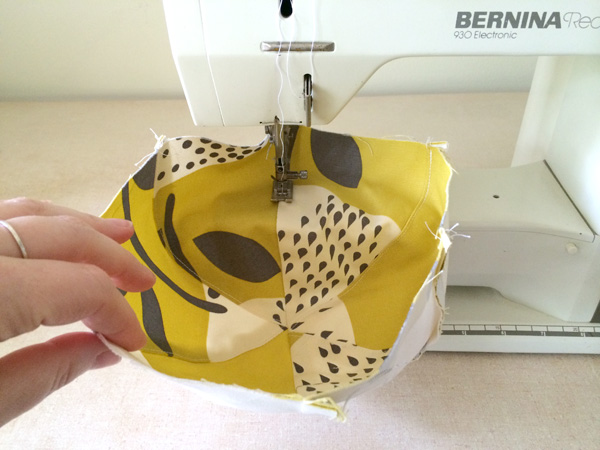
Insert the top seam you’ve just sewn back into the machine and topstitch with a ⅛” seam allowance. You’ll need to go over some bulky seam intersections, so take your time.
12. Sew the Cap Lining
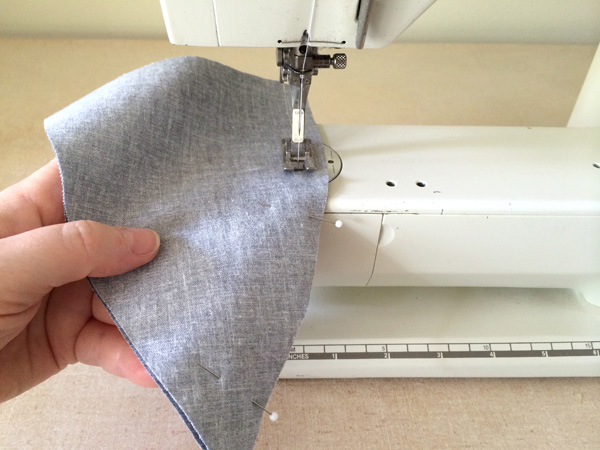
Place two of the lining pieces right sides together and pin along one of the curved sides. Sew the seam on a ½” seam allowance and stitch toward the top point, just as you did with the outer fabric. Press the seam allowance with your pressing ham under the curved seam.
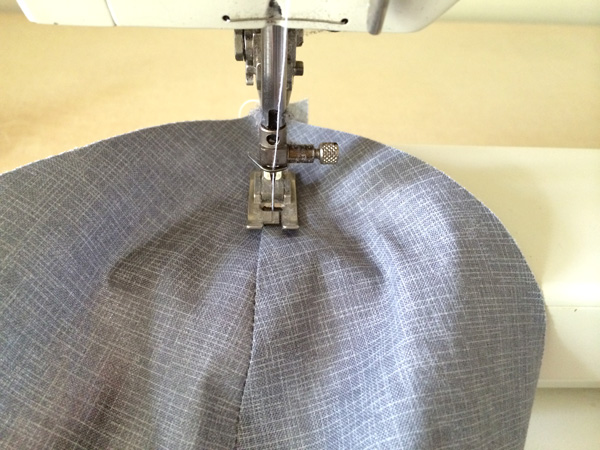
Topstitch the lining with a ⅛” seam allowance. Repeat this step to create the second half of the cap lining.
Place the two lining pieces right sides together and pin along the top curve. Stitch with a ½” seam allowance. Press the seam allowance to one side and topstitch as you did on the outer cap.
13. Sew the Rims
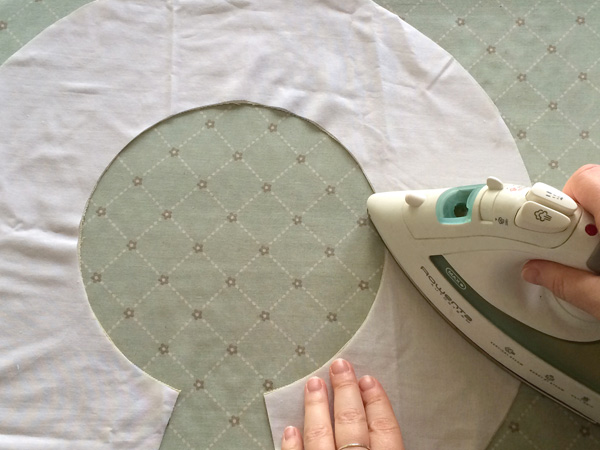
Cut one rim piece from lightweight woven fusible interfacing and fuse it to one of the rim pieces.
Good to Know: This piece of the rim will be on the underside of the hat, so keep that in mind if you’re using a different fabric for the two rim pieces.
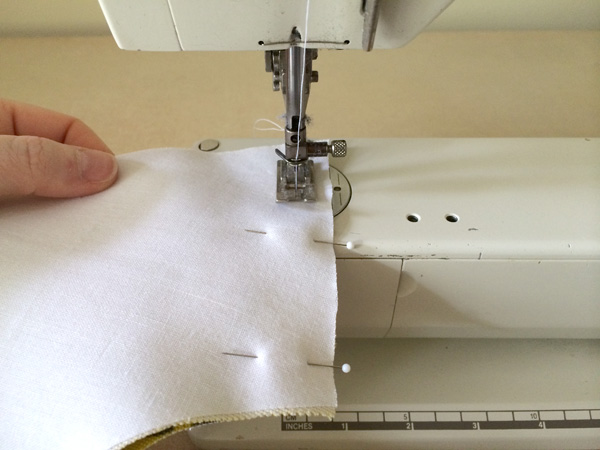
Fold the rim in half and pin the short edges right sides together. Stitch along the seam with a ½” seam allowance.
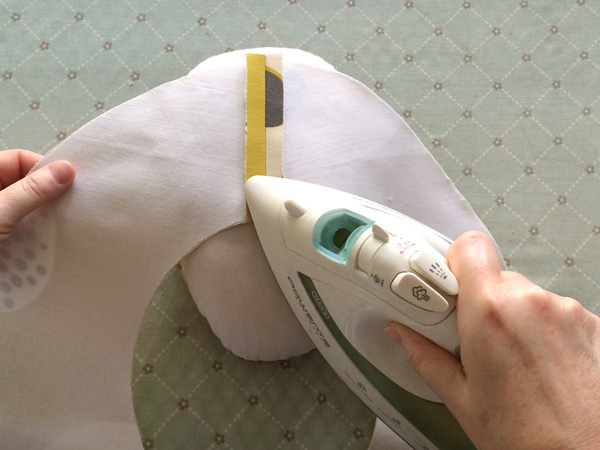
Press the seam open.
Pro Tip: When you’re working with curved seams, be careful not to stretch them out of place, since all the elements will need to line up when assembling the hat.
14. Join the Pieces
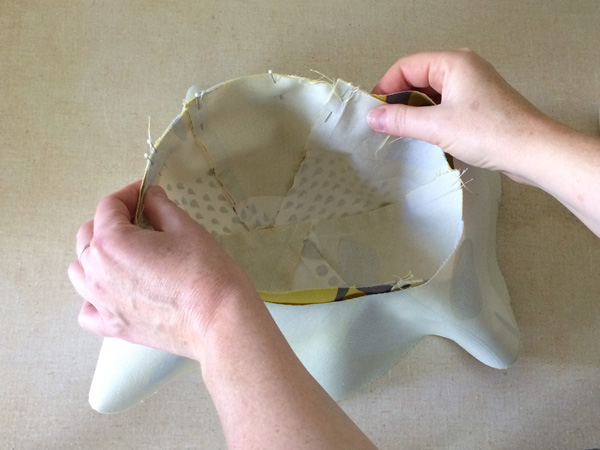
Place the outer cap and the non-interfaced rim right sides together, aligning the inner curve of the rim with the curve of the cap. Pin along the circle. Make sure to put the rim’s seam at a place on the cap that will end up at the back of the hat.
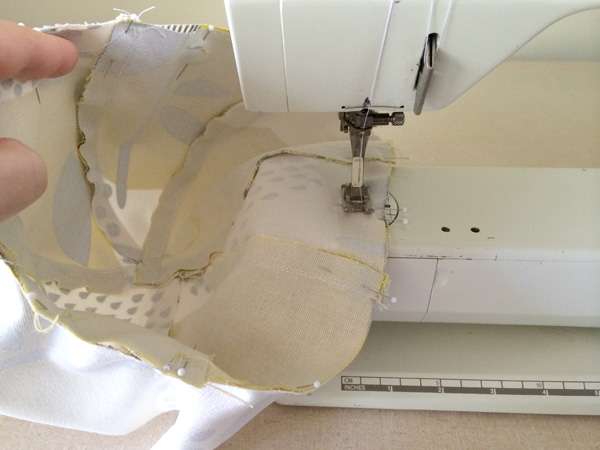
Sew around this circle at a ½” seam allowance. Be careful not to create any pinches in the fabric on the underside.
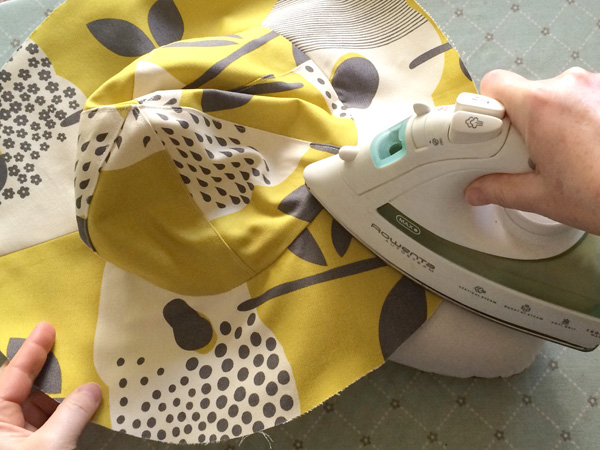
The seam allowance should face up into the cap portion of the hat. Press this area to help open up the seam. Now, when you sew the rim, the foot can get into the area around the cap with ease.
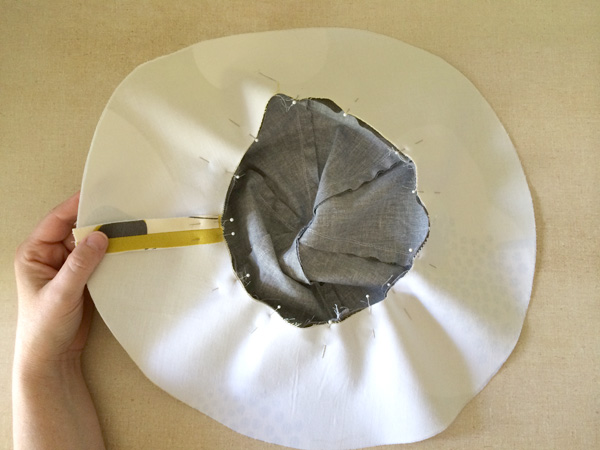
Pin the lining cap to the interfaced rim around the circle seam, just like you did in the last step. Mark a 2″ section of this seam and leave it unsewn so you can use it later for turning the hat right side out. Stitch together at a ½” seam allowance.
Press the seam and tuck the seam allowance of the 2″ unsewn area underneath.
15. Assemble the Hat
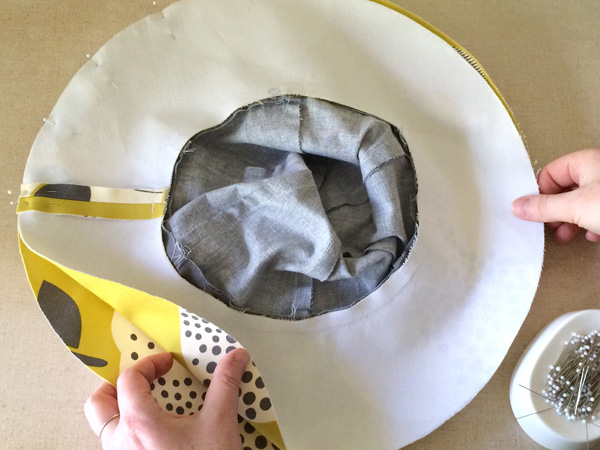
Place the two hat groupings together, right sides facing. Pin around the outer perimeter of the rims. The caps should fit inside each other.
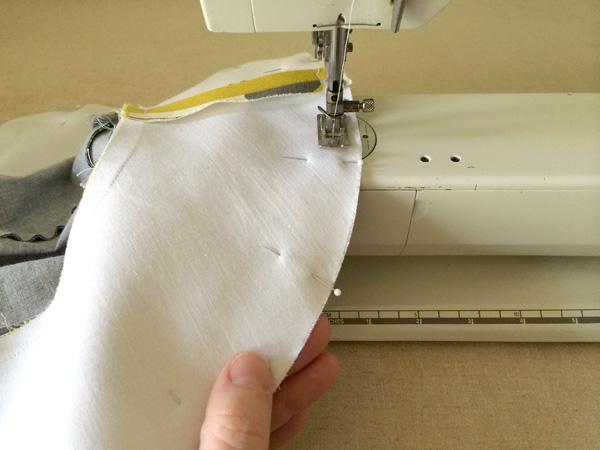
Sew around the rim, stitching the two rims together.
16. Finish
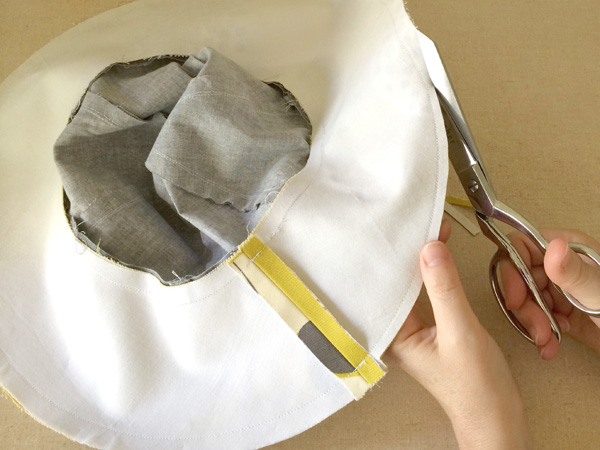
Trim the seam allowance in half.
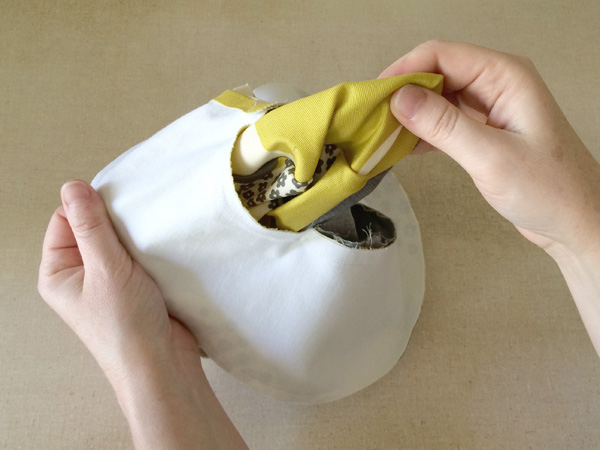
Gently pull the entire hat out through the 2″ hole you left unswen. Press the rim flat on both sides of the hat to prepare it for topstitching.
Pro Tip: If necessary, press the cap and rim seam again to keep the rim out of the way for topstitching.
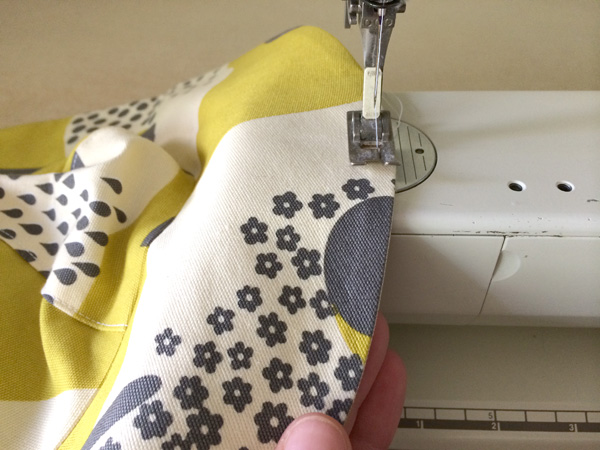
The pattern calls for you to only topstitch the rim at the outermost edge and at the seam where the cap and rim meet. But you may want your hat to have rows and rows of topstitching to help strengthen the rim and keep the hat from being too floppy. Plus, those extra rows can definitely bump up the style.
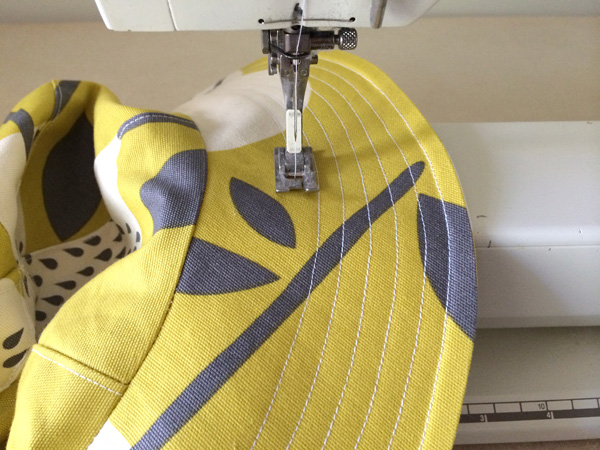
If you decide you want those extra rows, keep stitching around the rim, using the foot as your guide from row to row. Check your bobbin to make sure you won’t run out of thread along the way.
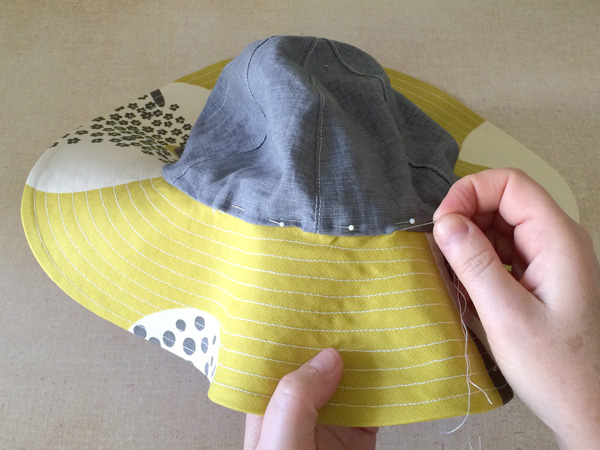
You’ll still see a hole left in the hat — hand stitch it closed with a needle and thread. Give the rim a final press and your hat is good to go.

Beach time! Pack your bag, grab your swimsuit and sunscreen and get ready to turn some heads.
I made my first one, however the brim inner circle was quite a bit larger than the cap so I ended up with a pleat. The pattern printed out correctly and the square was 2".
Beautiful
Good
Could the lining be made from linen so the hat would be more comfortable when hiking in the heat, for example?
Thank you for the wonderfully useful tutorial. Can the turning gap be placed in the rim instead of the cap?
<strong>Clear details and a quick hat to stitch up. Still bald from chemo and this hat is perfect to protect my head from the sun. Thank you!</strong>
Your instructions are really clear & simple to understand, and the pictures that illustrate how it's done are really helpful. I love how you explain about importance of sizing a pattern to get a correct size when its printed. I cant wait to try one out. Thank you so much. Maggie.
Your instructions are so clear, thank you. I'm starting chemo and want cute hats for style. I'm going to try stitching a knit liner to tie in back for comfort and security. Wish me luck!
Want to try this
Thanks